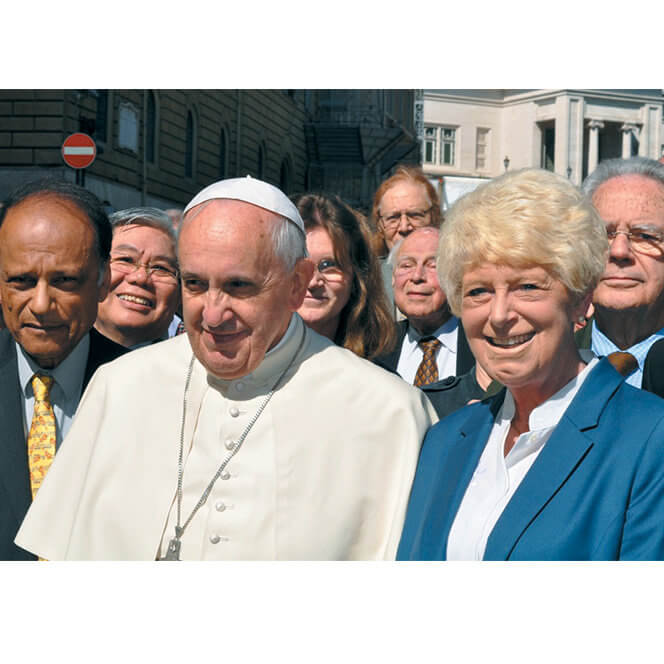The BSA is greatly saddened to learn of the death of Margaret Archer yesterday (21 May). Professor Archer was a leading social theorist and had been given the BSA’s Lifetime Achievement Award at our annual conference in April.
Margaret Archer (born 20 January 1943 and brought up in Derbyshire) was a prominent sociological theorist whose public roles included President of the Pontifical Academy of Social Sciences, the Vatican’s advisory body.
She was drawn to sociology after becoming an active supporter of nuclear disarmament at the age of 15. She was awarded a first degree in sociology at the London School of Economics in 1964, and went on to complete a PhD there in 1967 on the educational aspirations of English working class parents. She carried out post-doctoral study at École Pratique des Hautes Etudes, Sorbonne, Paris, where she worked with Pierre Bourdieu.
She lectured at the University of Reading from 1966-73, and was a Reader at the University of Warwick from 1973-79 and a Professor there from 1979. She was Director of The Centre for Social Ontology, established in 2011 at the École Polytechnique Fédérale de Lausanne and which later moved to the Department of Sociology at the University of Warwick.
Professor Archer wrote on educational systems in Social Conflict and Educational Change in England and France 1789-1848 (1971, written with Michalina Vaughan) which developed her interest in understanding the interplay between structure, culture and agency.
This led on to works that marked her as an important theorist in the critical realism school. She wrote or co-wrote 10 books, including Culture and Agency: The Place of Culture in Social Theory (1988); Realist Social Theory: the Morphogenetic Approach (1995); Being Human: The Problem of Agency (2000); and Structure, Agency and the Internal Conversation (2003). She also edited or co-edited a dozen books.
Professor Archer edited the International Sociological Association’s journal Current Sociology from 1972 to 1982, and was the ISA’s President from 1986 to 1990, the first woman elected to the post.
Her presidency of the ISA and her Catholic belief made her a natural choice to be nominated as a founding member of the Pontifical Academy, sitting on its governing Council. The Academy was established by Pope John Paul II in 1994 to advise him on social teaching.
In 2014 she was appointed as the Academy’s President. Under her, it held plenary sessions and workshops on topics including human trafficking, modern slavery, climate change and migration.
She was a founding member and Fellow of the Academy of Social Sciences.

When she was asked what she did for fun, in an interview for the BSA’s magazine, Network, she replied, “nothing at all – I find it in the interstices of routine, even mundane events, when some exchange suddenly turns on the lights. I could also say scrambling in Chamonix with Freya, my granddaughter, and Maximus, our Bernois dog, and that would be true too.”


